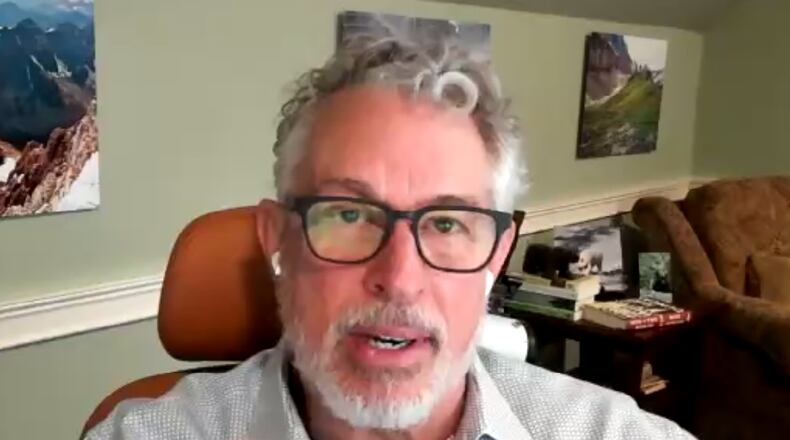“What happens is every generation is capable of re-inventing,” Perry said. “It’s capable of taking the accumulated learnings of previous generations and using them and modifying them and passing them on.”
Perry has published three books on examining effects of trauma and neglect on the brain in children, teens and adults, including one book co-authored with TV star Oprah Winfrey,
Shannon Cox, director of the Montgomery County Educational Services Center, said she found Perry’s work impactful when the MCESC was doing research into how to help students who had deeply traumatic experiences in their lives. The MCESC has recently launched a preschool classroom for children and families who went through foster care.
“There will always be job loss, tornadoes, fires, hate rallies, illness, and hopefully never, never ever another pandemic but even that we cannot control,” Cox said. “But what we can do is we can equip our young people, our youngest learners with their own resources, but also provide the caring adults around them with resources to help each other overcome and heal life’s challenges.
Breaking the cycle is key to success in parents and therefore, in kids, Perry said. It’s more than just making sure a child feels safe in their classroom each day. Adults also need to feel safe and supported by their communities.
“We need to remember that human beings are interdependent,” Perry said. “Huge parts of our brain are dedicated to forming and maintaining relationships to reading and responding to other people.”
He said when those parts of the brain develop well, no matter what happens in the rest of your life, you will be successful. And it’s key to develop those parts of the brain in early childhood, he said.
“In order for you to develop language capabilities, you need to get a certain pattern and a certain type and a certain timing of experience that will literally send the organizing signals to the part of the brain that will ultimately be responsible for us pointing at a cow and saying, cow,” he said.
Because of how our brains are set up to depend on other people, Perry said that also can create problems when people feel threatened: racism, sexism and other “-isims.”
“But we have the capability of being warm and generous and kind and inclusive,” Perry said. “And we have the capability of being marginalizing, demonizing, destructive and hateful. The question is, how do we optimize one and minimize the other?”
He argued the best way to do that is through strengthening community and family relationships.
“I know that sounds crazy, but we’ll be much better at raising young children when we have safe and stable communities where people respect each other,” Perry said. “It’s very hard to parent and be present for your baby when you’re worried about where you live, where the food comes from, all of that stuff.”
About the Author

